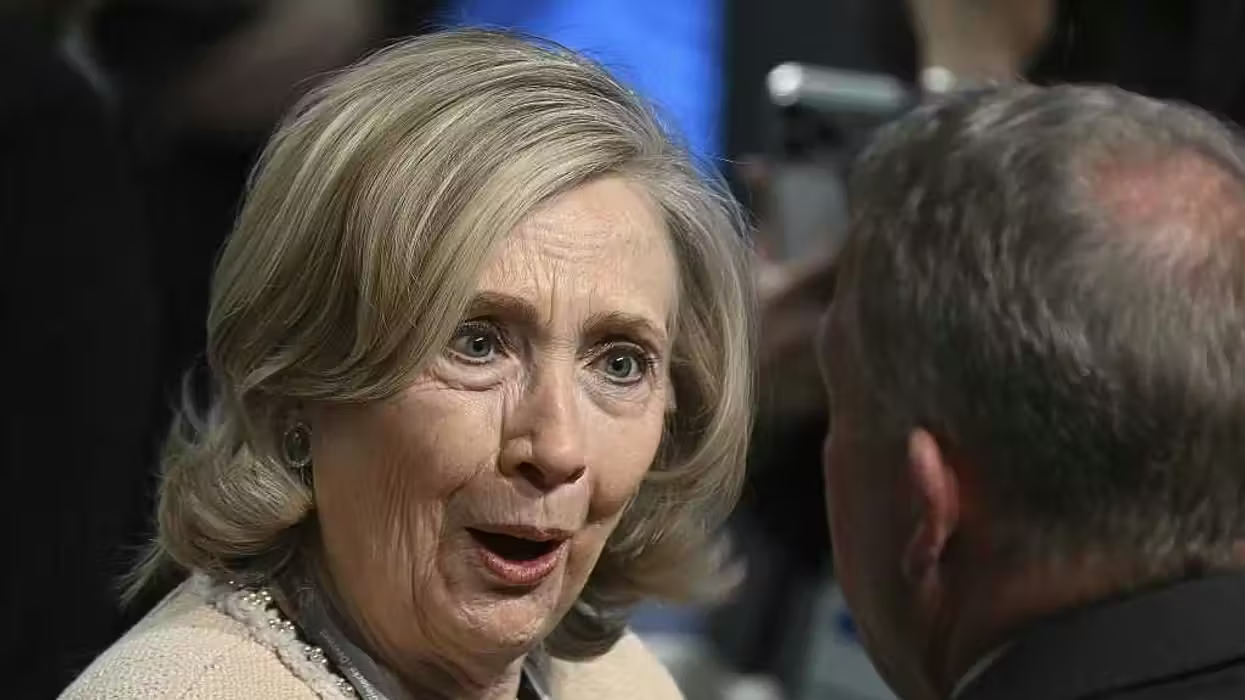
© 2026 Blaze Media LLC. All rights reserved.
That money was supposed to go to small businesses....
WASHINGTON (AP) -- Some banks will use money from a government program aimed at increasing small business loans to repay their federal bailouts, according to the Treasury Department official who oversees the bailout program.
In a brief interview, Acting Assistant Secretary Timothy G. Massad said Wednesday that Treasury has yet to grant approval to any banks seeking to use money from the Small Business Lending Fund to repay their bailouts, "but they will." Last year's law creating the lending program lets banks use money from that program to repay their bailouts.
"I do expect them to approve the applications of many TARP recipients to refinance their loans under the small business lending fund," he said, using the acronym for the Troubled Asset Relief Program, the bailout's formal name.
Sen. Charles Grassley, R-Iowa, complained in a recent letter to Treasury Secretary Timothy Geithner that using one federal program to repay another would be "an egregious example of budget gimmickry."
Grassley wrote that he worries that the Obama administration is using the small business program as "a bailout for banks and a pass-through to falsely show profits in the TARP program."
Massad's comments came shortly after he told Congress that Treasury is now running a profit on the portion of the $700 billion federal bailout that went to banks. None of the bank bailout repayments Treasury has received so far come from the loan program, he said.
Like the bailout, the loan program was a response to the economic downturn, in this case an effort to help small businesses get capital that had become difficult for them to attain. The loan program provides money to smaller banks - their assets must be under $10 billion - and charges them lower interest rates if the money is used for loans to small businesses.
More than 500 small banks have applied for the loan program, according to Treasury figures. Massad said less than $10 billion will ultimately be repaid to the bailout from the loan program.
Paul Merski, chief economist for the trade group Independent Community Bankers of America, said there was a lot of interest among small banks in using the loan program to repay any bailout debts.
The bailout's wide unpopularity left it with a "stigma" that many bankers are eager to escape, he said. In addition, bankers could save money by using loan program funds to both repay their bailouts and to make small business loans, thus lowering their interest rates.
"It's almost a no-brainer," he said.
Treasury spokeswoman Colleen Murray noted that banks using loan program money to repay their bailouts only get lower interest rates if they increase their small business lending. If they don't boost their small business loans, they would generally pay "the same or higher dividend rate," she said.
Massad told a House subcommittee that oversees the federal bailout that with $7.4 billion in repayments the department was receiving on Wednesday, Treasury has now received $251 billion back from banks - surpassing the $245 billion in bailout funds it distributed to banks, he told a House subcommittee that oversees that program.
Ultimately, Treasury expects to earn a near $20 billion profit from the banking portion of the bailout, he said.
According to Treasury, only $411 billion out of the bailout's $700 billion was distributed and about 70 percent of it has been repaid. The rest of the bailout money went to the insurance giant AIG, to automotive companies and to some credit and housing entities.
The Treasury Department also released a new estimate of the total cost of all the government's bailouts, including the massive assistance provided by the Federal Reserve to support the financial system. The new estimate projects an eventual profit of $24 billion, including a projected $110 billion in income Treasury estimates the Fed will make on its investments in mortgage-backed securities and other assets.
That gain will help offset losses of $45.6 billion in housing programs, including a controversial initiative providing mortgage modifications that the House voted this week to end.
---
Want to leave a tip?
We answer to you. Help keep our content free of advertisers and big tech censorship by leaving a tip today.
Want to join the conversation?
Already a subscriber?
more stories
Sign up for the Blaze newsletter
By signing up, you agree to our Privacy Policy and Terms of Use, and agree to receive content that may sometimes include advertisements. You may opt out at any time.
Related Content
© 2026 Blaze Media LLC. All rights reserved.
Get the stories that matter most delivered directly to your inbox.
By signing up, you agree to our Privacy Policy and Terms of Use, and agree to receive content that may sometimes include advertisements. You may opt out at any time.







